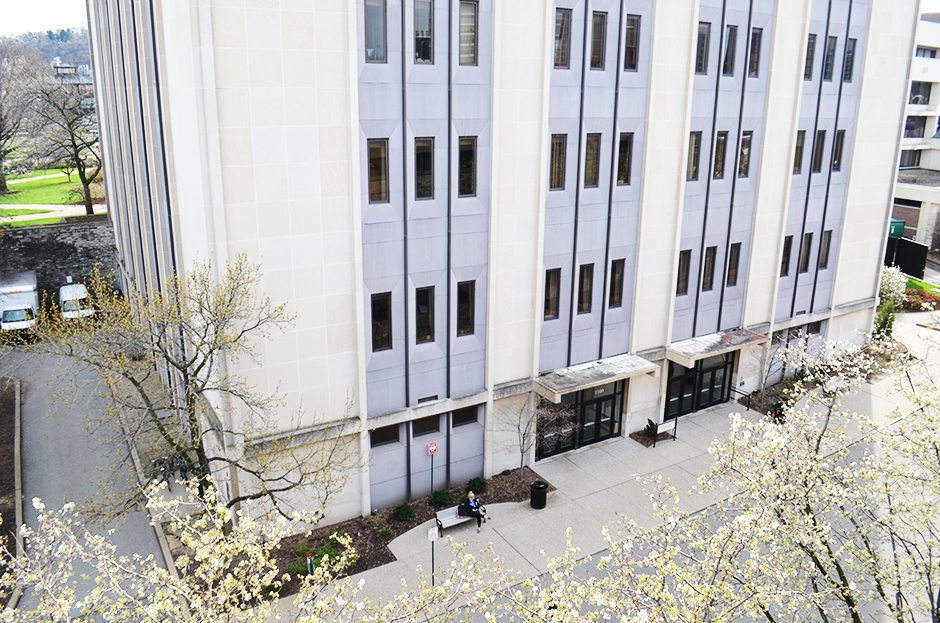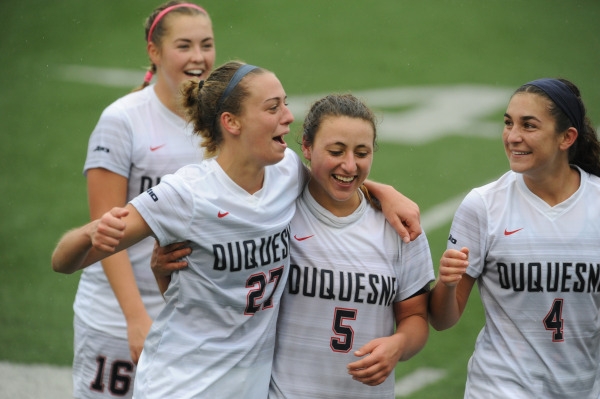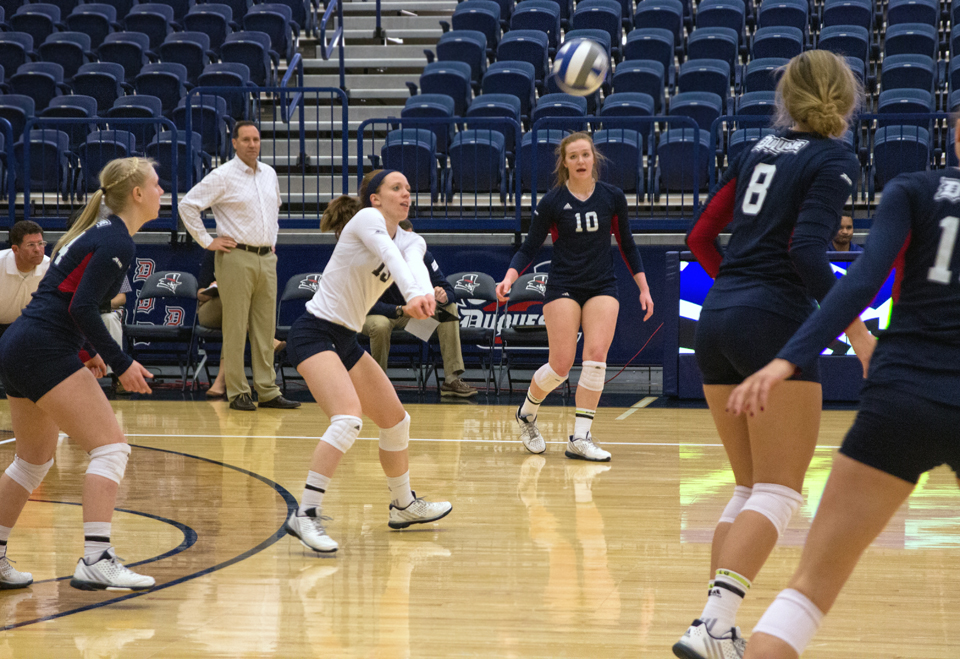
A photo of College Hall, home of the McAnulty School of Liberal Arts. The NLRB ruled that adjuncts at DU are allowed to unionize, with the exception of theology.

A photo of College Hall, home of the McAnulty School of Liberal Arts. The NLRB ruled that adjuncts at DU are allowed to unionize, with the exception of theology.
Zachary Landau | Asst. A&E Editor
The Washington D.C. bureau of the National Labor Relations Board (NLRB), a federal agency that adjudicates cases involving labor disputes, voted 2-1 against Duquesne University on April 10 over an appeal from Duquesne in which the school claimed it is not under NLRB jurisdiction because it is a religious institution.
The appeal stems from the university’s decision not to recognize a group of unionized adjunct professors in the liberal arts school, which was brought before the Region 6 NLRB office in 2012. The Region 6 office rejected Duquesne’s religious exemption claim. The university then appealed the decision to the NLRB’s national office in Washington, D.C.
The importance of unionization for adjuncts comes down to proper pay and job security according to United Steelworkers Organizer Robin Sowards.
“Adjunct faculty at Duquesne are paid poverty-level wages … and have zero job security from one semester to the next, even if they’ve been teaching at Duquesne for decades,” Sowards said in an email to The Duke.
Sowards also explained that adjuncts may only earn up to $16,000 a year.
“The only demonstrated mechanism for remedying these problems is unionization.”
NLRB board members Mark Pearce and Lauren McFerran’s April 10 decision excluded Duquesne’s theology faculty, who they acknowledged perform “a specific role in maintaining the University’s religious education environment.” The D.C. bureau sent the case back to the regional office for “further appropriate action,” according to the decision.
Duquesne President Ken Gormley said in a statement emailed to students that the NLRB is acting against “over 30 years of United States Supreme Court and Federal Appeals Court rulings” in this decision. Gormley cited a similar NLRB case, NLRB v. Catholic Bishop of Chicago, to support the university’s claim against NLRB’s ability to exert jurisdiction over religion-based schools.
“The NLRB once again has chosen to ignore those legal standards established by the Courts,” Gormley wrote.
Gormley added the NLRB’s decision is a result of the board not seeing Duquesne University as “sufficiently religious” to be exempted from its “control.”
The NLRB cites in its decision earlier cases involving Seattle University and St. Xavier University, specifying which departments the NLRB can have jurisdiction over.
“Applying the Board’s recent decisions in [the Seattle University and St. Xavier University case],” the decision said, “We find that [Duquesne] University holds out the part-time adjunct faculty in the Department of Theology as performing a specific role in maintaining the University’s religious educational environment.”
However, the NLRB disagreed with Duquesne’s assessment of the NLRB v. Catholic Bishop case, claiming that the board is not assessing “the religious content of the courses [that the Theology department] teach or otherwise compared the content of those courses to those taught by faculty in other departments.”
“Rather,” the decision continued, “we have assessed only the University’s presentation of those courses to the faculty, students and public at large.”
In his statement, Gormley said Duquesne “took a principled stand” during the original disputes because the university “could not risk negotiating its Catholic Mission in the Spiritan tradition or the faculty’s role in it with a union, much less entrust its mission or that relationship to the supervision of a government agency in Washington, D.C.”
According to a fact sheet from the United States Conference of Catholic Bishops, Catholic social teaching “supports the right of workers to choose whether to organize, join a union and [to] bargain collectively … without reprisal.”
This contention is part of a wider movement of adjunct professors attempting to unionize across the country. Adjuncts at universities like Duke, Northeastern and Boston University have similarly voted to affiliate themselves with unions within the past few years.
The Pittsburgh region has experienced a similar wave of unionization. Adjuncts at Point Park University, Robert Morris University and Allegheny Community College have all voted to unionize.
Sowards also said that Duquesne’s continuing pursuit of their appeal is “unfortunate because the administration is spending tuition dollars on anti-union consultants instead of on educating students.”
Gormley said the university’s decision to challenge this ruling is not meant to hurt the relationships between Duquesne and the unions that already represent workers on its campus.
“The issue is not about the University’s support for unions,” Gormley said. “There are four existing unions representing non-faculty members of our community on campus … They have been on campus for decades and the University [sic] has a good working relationship with each of them.”




